Spatial awareness Geometry Worksheets for Ages 7-8
12 filtered results
-
From - To
Enhance your child's spatial awareness with our engaging Geometry Worksheets, specifically designed for ages 7-8! These resourceful worksheets are perfect for developing essential skills such as visual perception, understanding shapes, and spatial relationships. Through fun exercises and interactive challenges, kids will explore concepts like symmetry, position, and relative distances, promoting critical thinking and problem-solving abilities. Ideal for homeschooling or classroom use, these worksheets foster a love for learning while providing foundational geometry skills. Download your free worksheets now and watch your child's confidence and understanding in geometry flourish! Perfect for parents and teachers eager to support young learners.
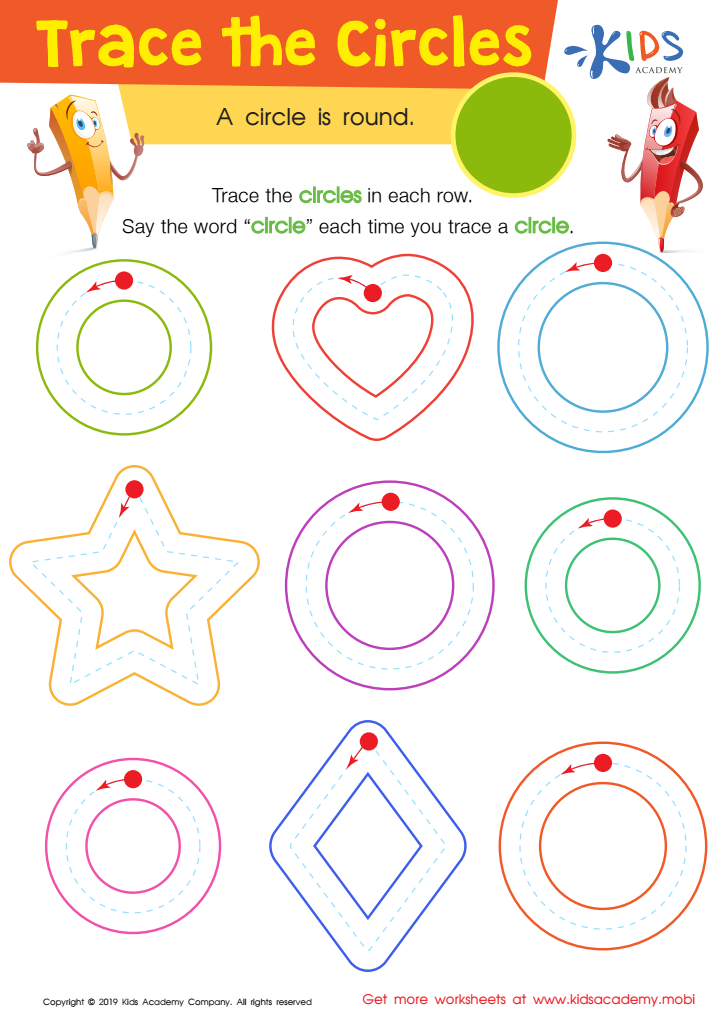

Trace The Circles Worksheet
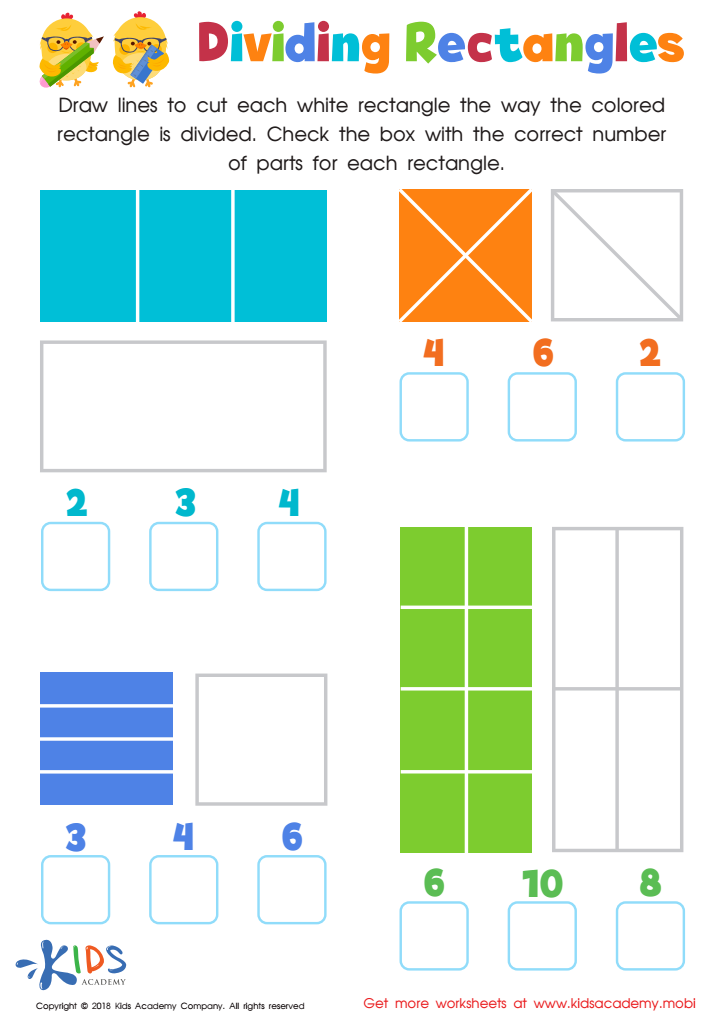

Dividing Rectangles Worksheet
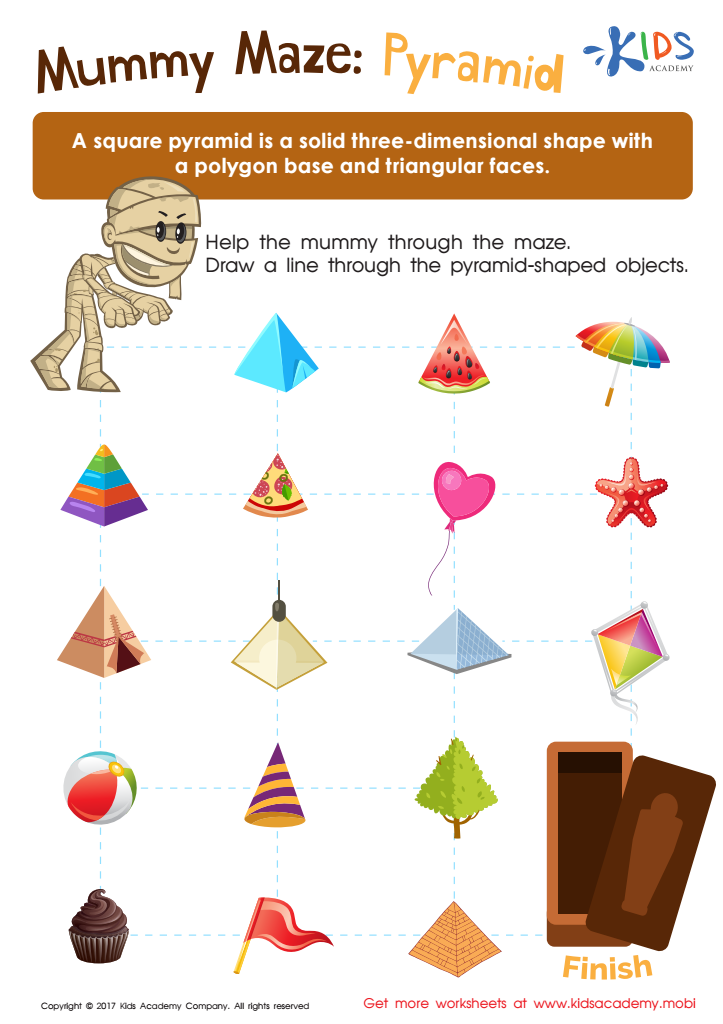

Mummy Maze: Pyramid Printable
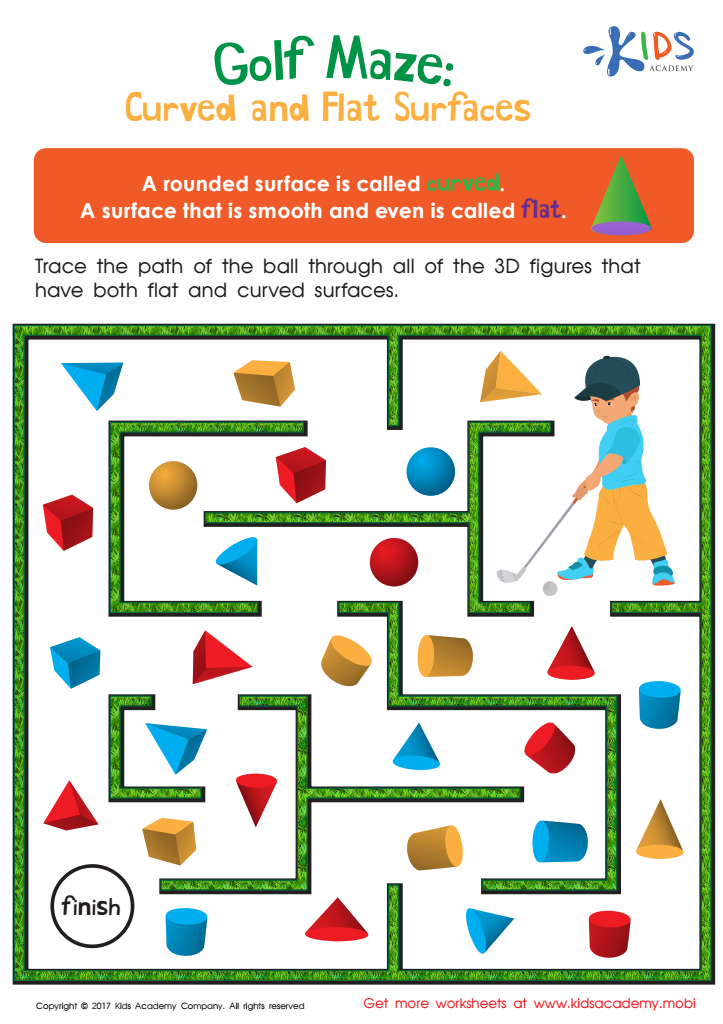

Golf Maze: Curved and Flat Surfaces Worksheet
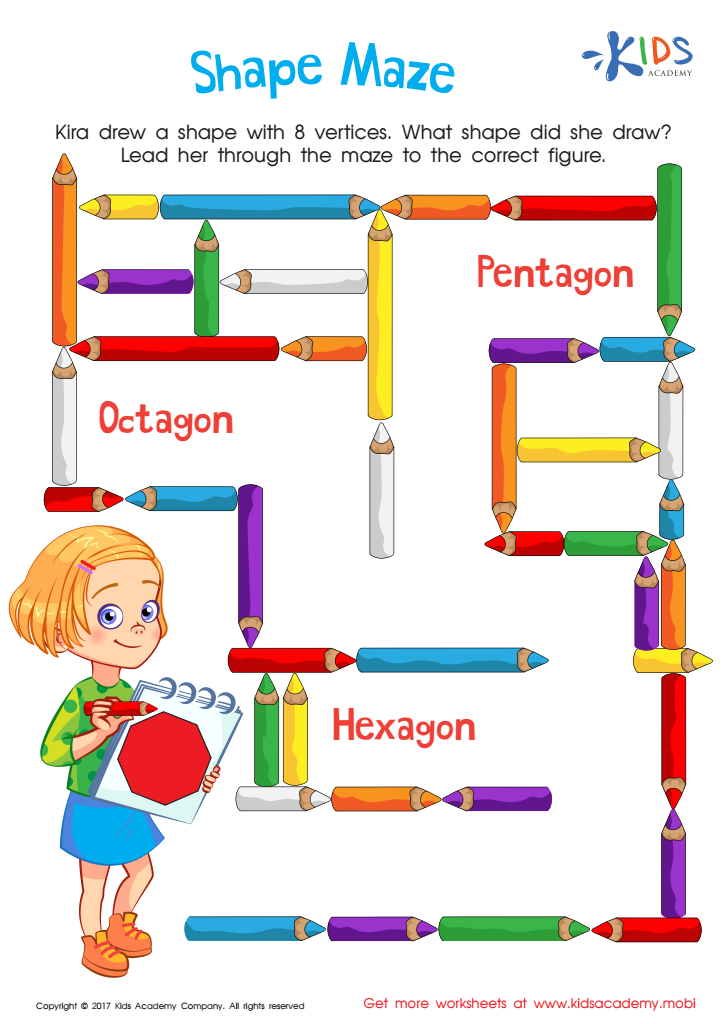

Shape Maze Worksheet
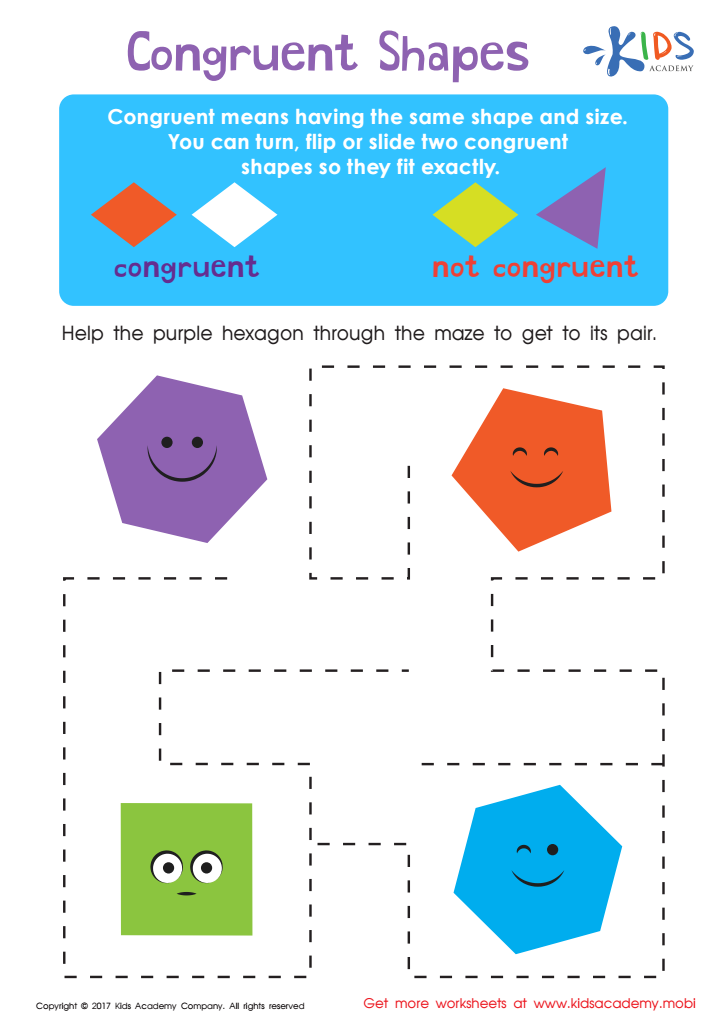

Congruent Shapes Worksheet
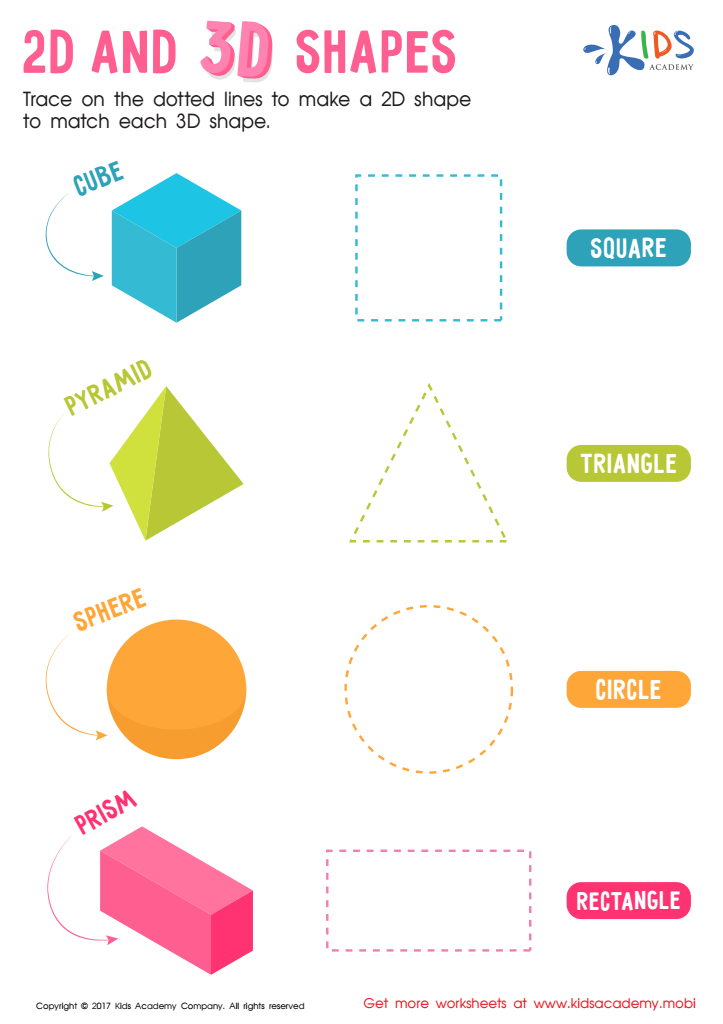

2D and 3D Shapes Worksheet
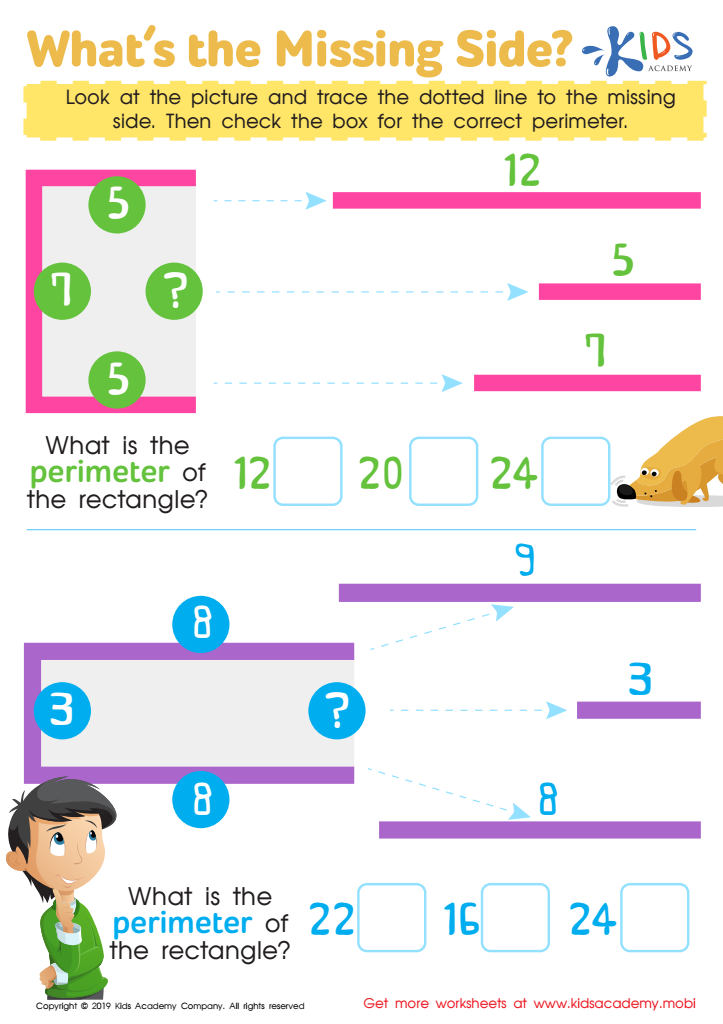

What's the Missing Side Worksheet
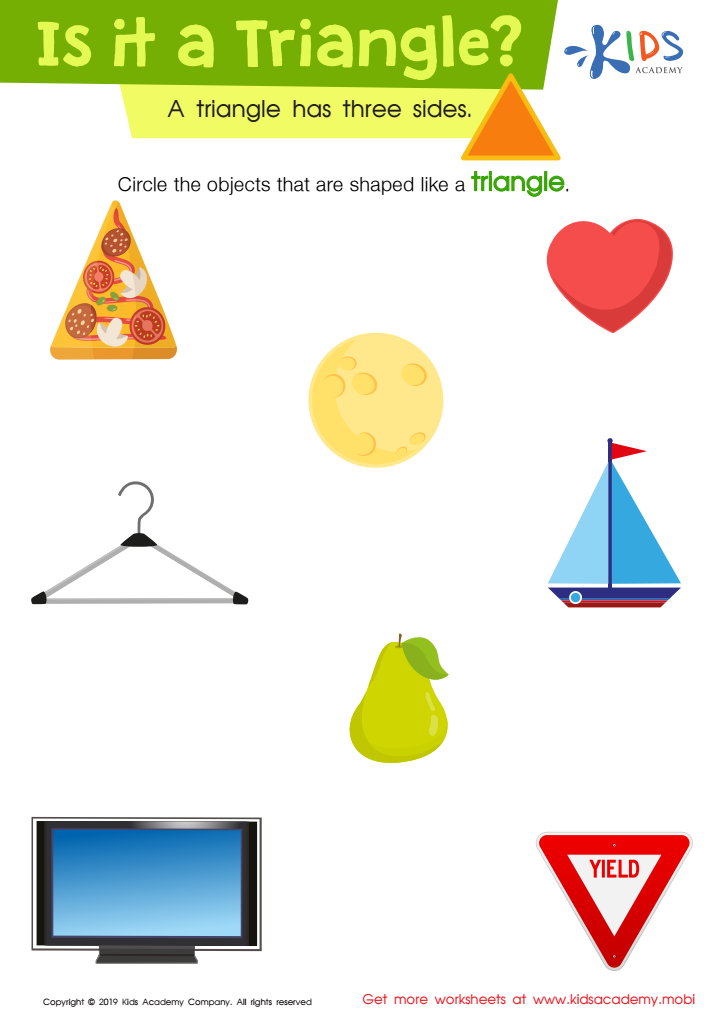

Is It a Triangle? Worksheet
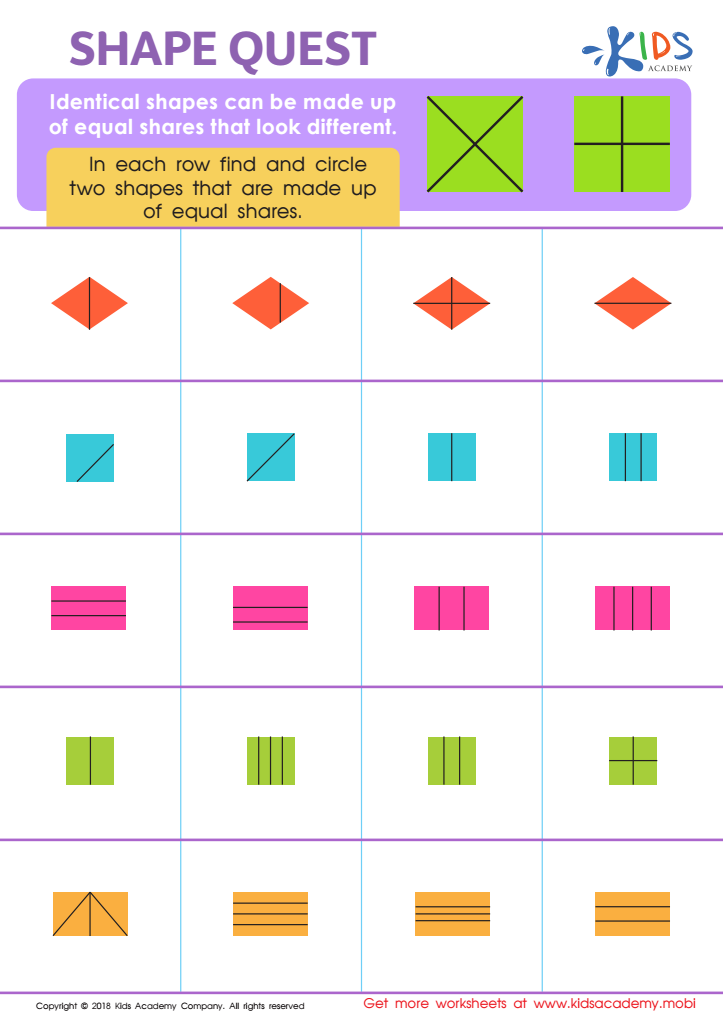

Shape Quest Worksheet
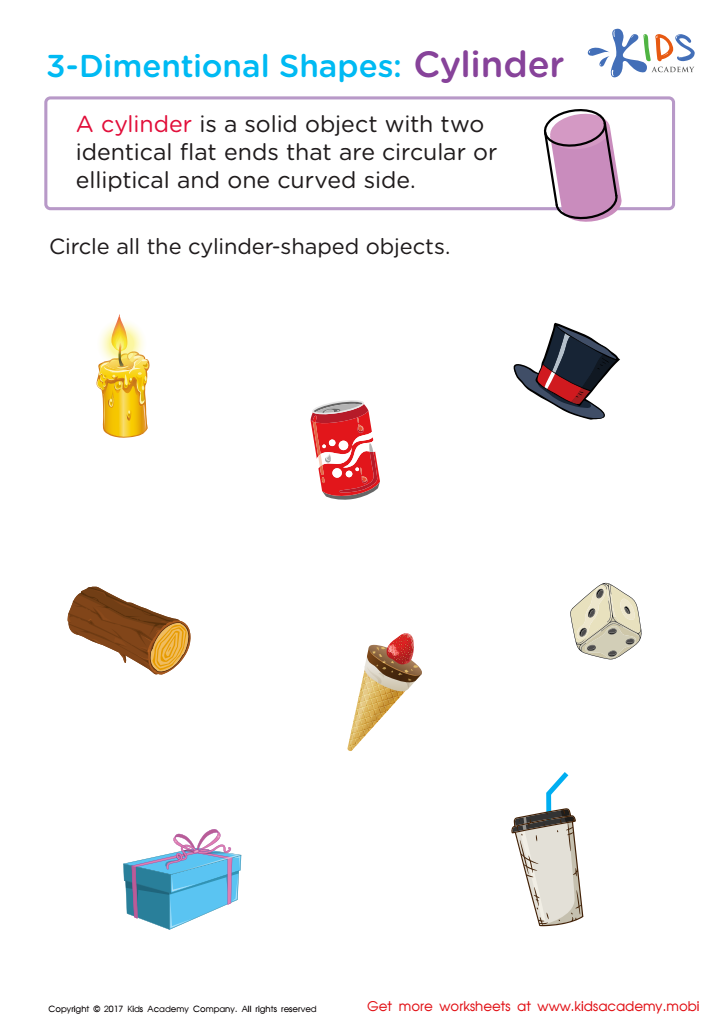

Three–Dimensional Shapes: Cylinder Worksheet
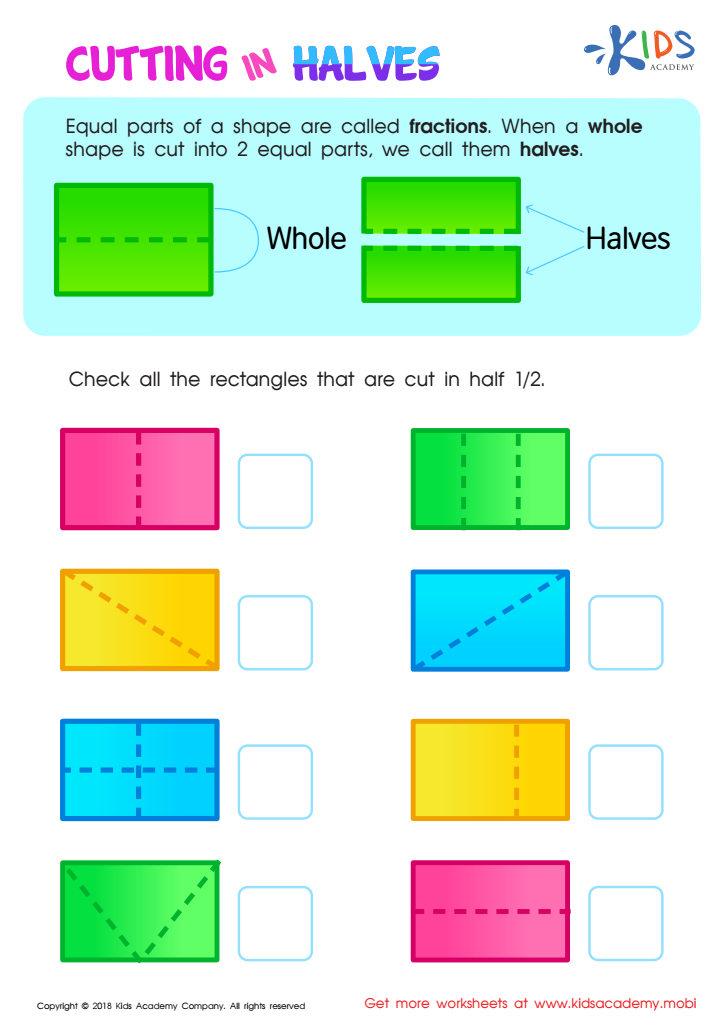

Cutting in Halves Worksheet
Spatial awareness and geometry are essential skills for children aged 7-8, and understanding their significance can help parents and teachers foster crucial developmental growth. At this age, children are not only learning basic geometric shapes but also beginning to understand concepts of space, distance, and relationships between objects. Building spatial awareness enhances problem-solving capabilities, critical thinking, and creativity. These skills play a fundamental role in various subjects, including mathematics, science, and even art.
Moreover, spatial awareness directly impacts daily life skills. It aids in navigation, organizing space, and making sense of the world around them. For example, young learners use spatial reasoning when playing games, constructing with blocks, or navigating their environment – activities that are both educational and engaging.
Additionally, fostering these skills at a young age lays a strong foundation for advanced mathematical concepts and STEM-related fields in the future, where spatial reasoning is often paramount. By incorporating geometry and spatial awareness into learning activities, parents and teachers can create a dynamic educational environment that supports holistic development, empowers students to think critically, and prepares them for future success in both academics and everyday life. Encouraging proficiency in these areas is an investment in a child's lifelong learning journey.
 Assign to My Students
Assign to My Students
















